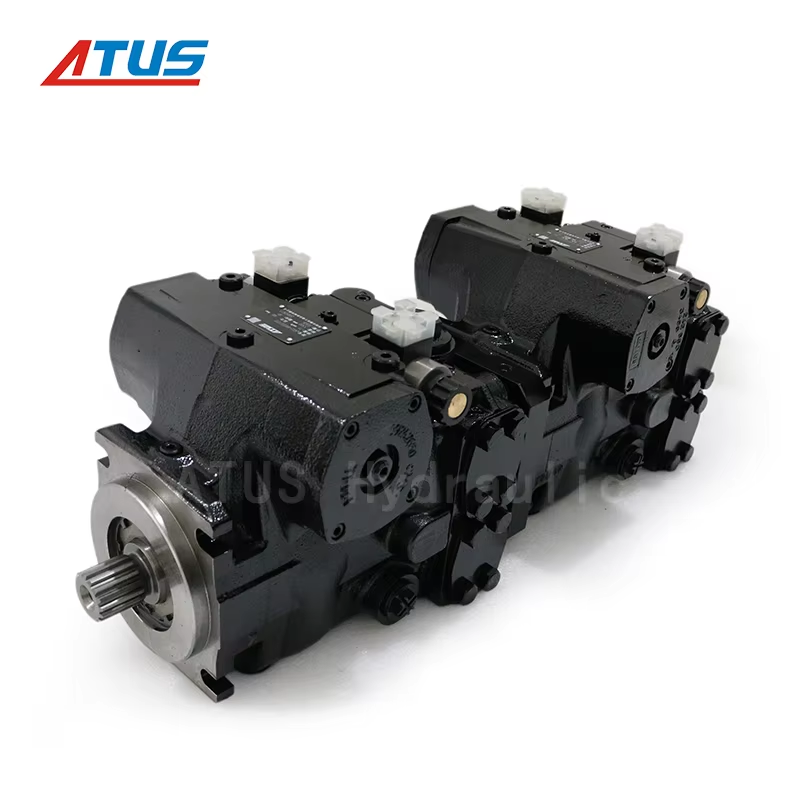Hydraulic pumps play a crucial role in various industrial applications, providing the necessary power to operate machinery and equipment. However, these systems often consume a significant amount of energy, leading to higher operational costs and environmental impact. ATUS, a leading provider of hydraulic solutions, understands the importance of energy efficiency in hydraulic systems. By implementing energy-saving strategies, businesses can optimize performance, reduce energy consumption, and improve their overall sustainability.
Understanding Hydraulic Pump Energy Consumption
Hydraulic pumps work by converting mechanical energy into hydraulic energy to power systems such as lifting equipment, construction machinery, and manufacturing lines. However, the energy required to operate hydraulic pumps can be quite substantial, especially if the system is not optimized for efficiency. Common issues such as incorrect pump sizing, inefficient operation, and improper maintenance can lead to increased energy consumption and higher costs.
Energy-Saving Tips for Hydraulic Pumps
1. Proper Pump Sizing
One of the most effective ways to improve energy efficiency is by ensuring that the hydraulic pump is correctly sized for the application. An oversized pump can result in unnecessary energy consumption, while an undersized pump may cause system inefficiencies or potential damage. ATUS recommends conducting a detailed analysis of the system's requirements to select a pump with the right capacity.
2. Variable Speed Drives (VSD)
Installing a Variable Speed Drive (VSD) is a proven method for improving energy efficiency in hydraulic systems. VSDs allow pumps to operate at varying speeds based on demand, reducing energy usage when full capacity is not needed. ATUS integrates VSD technology in its systems to enhance pump efficiency and reduce energy waste.
3. System Maintenance
Regular maintenance is key to ensuring the efficient operation of hydraulic pumps. Worn components, such as seals, bearings, or valves, can increase friction and reduce the system’s overall performance. ATUS emphasizes the importance of routine checks and timely replacements to maintain peak performance and minimize energy loss.
4. Optimize Fluid Viscosity
The viscosity of hydraulic fluid plays a significant role in energy consumption. High-viscosity fluids can cause more resistance in the pump, requiring additional energy to operate. By using fluids with the appropriate viscosity for the specific temperature and operating conditions, businesses can reduce energy consumption and improve pump efficiency. ATUS offers a range of high-performance hydraulic fluids designed to optimize system performance.
5. Use Energy-Efficient Pumps
Choosing energy-efficient hydraulic pumps is another effective way to reduce energy consumption. ATUS offers a range of high-efficiency pumps that are designed to deliver optimal performance with minimal energy input. These pumps are engineered with advanced technologies to reduce internal losses and improve overall energy efficiency.
6. Leak Prevention
Hydraulic leaks can significantly reduce system efficiency, leading to increased energy consumption and operational costs. Regularly checking for and repairing any leaks in the system can help ensure that energy is not wasted. ATUS’s advanced sealing technologies help minimize leakage and improve overall system efficiency.
The Benefits of Energy-Saving Practices
By implementing these energy-saving tips, businesses can experience a wide range of benefits, including reduced operational costs, extended equipment life, and improved environmental sustainability. Furthermore, optimizing hydraulic pump efficiency aligns with global efforts to reduce energy consumption and lower carbon emissions, contributing to a greener future.
Energy efficiency in hydraulic pump systems is essential for reducing operational costs and promoting sustainability. ATUS, with its innovative solutions and commitment to energy-saving practices, helps businesses optimize their hydraulic systems for maximum performance with minimal energy usage. By following these simple yet effective energy-saving tips, companies can improve efficiency, reduce energy consumption, and contribute to a more sustainable industrial future.
